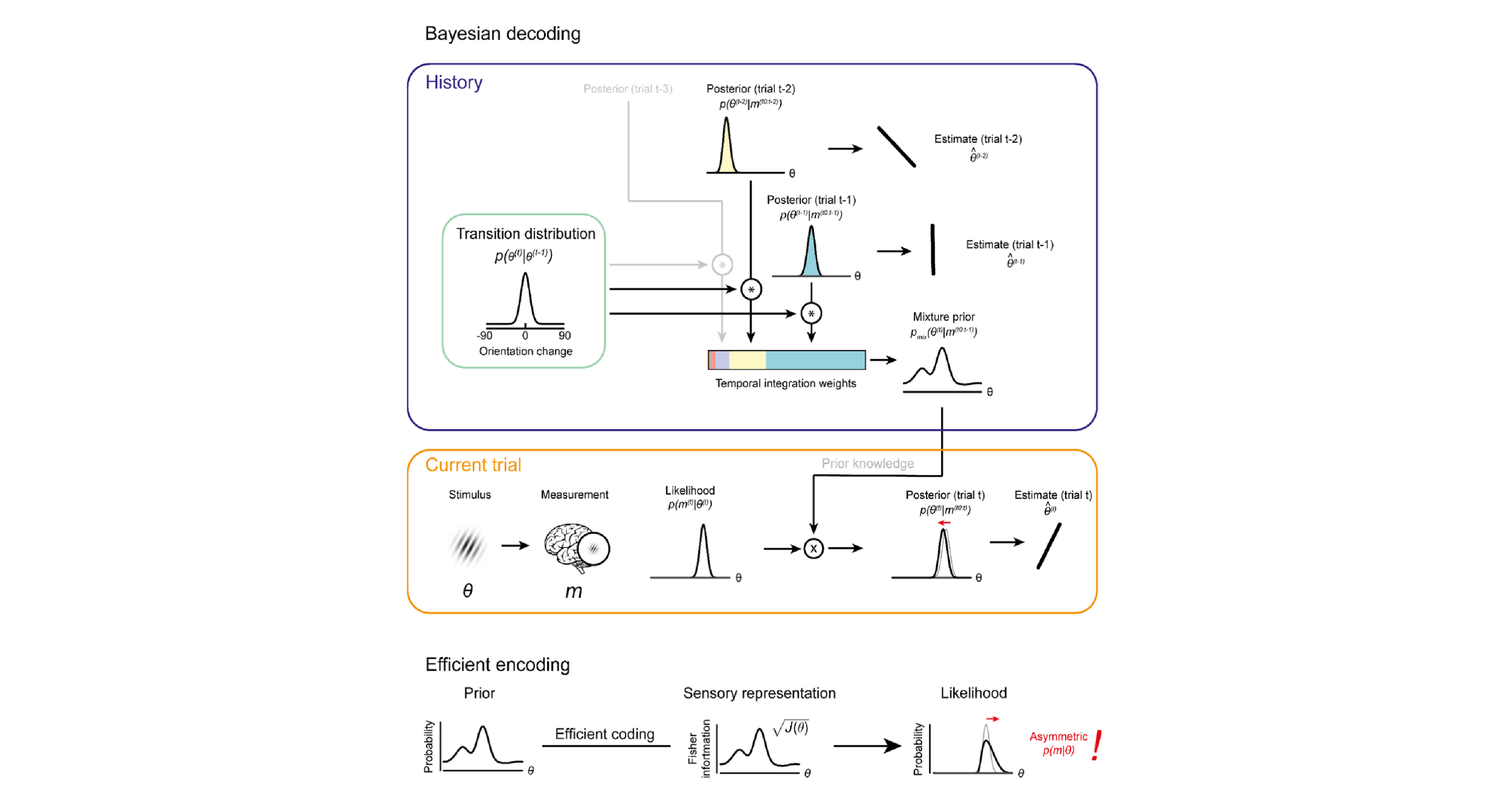
A Bayesian and efficient observer model explains concurrent attractive and repulsive history biases in visual perception
Human perceptual decisions can be repelled away from (repulsive adaptation) or attracted towards recent visual experience (attractive serial dependence). It is currently unclear whether and how these repulsive and attractive biases interact during visual processing and what computational principles underlie these history dependencies. Here we disentangle repulsive and attractive biases by exploring their respective timescales. We find that perceptual decisions are concurrently attracted towards the short-term perceptual history and repelled from stimuli experienced up to minutes into the past. The temporal pattern of short-term attraction and long-term repulsion cannot be captured by an ideal Bayesian observer model alone. Instead, it is well captured by an ideal observer model with efficient encoding and Bayesian decoding of visual information in a slowly changing environment. Concurrent attractive and repulsive history biases in perceptual decisions may thus be the consequence of the need for visual processing to simultaneously satisfy constraints of efficiency and stability.

Impaired Motor Recycling during Action Selection in Parkinson’s Disease
The human motor system recycles motor parameters of previous actions when programming new actions, promoting efficient motor behavior. Here, we investigated the contribution of the basal ganglia to this transfer of motor parameters over subsequent actions. We assessed motor recycling by analyzing kinematic movement parameters during sequential hand movements that involved either a switch or no switch between hands. Compared with matched controls, Parkinson’s patients were impaired in transferring previously used motor parameters to new actions, but only when switching actions between hands. This suggest that the basal ganglia are important for motor recycling, and that the impaired ability of Parkinson’s patients to perform this computation may result in motor slowing.

The role of feature-based attention in visual serial dependence
In this paper we show that feature-based attention strongly modulates visual serial dependence, and differentially affects attractive biases between similar stimuli versus repulsive biases between dissimilar stimuli.